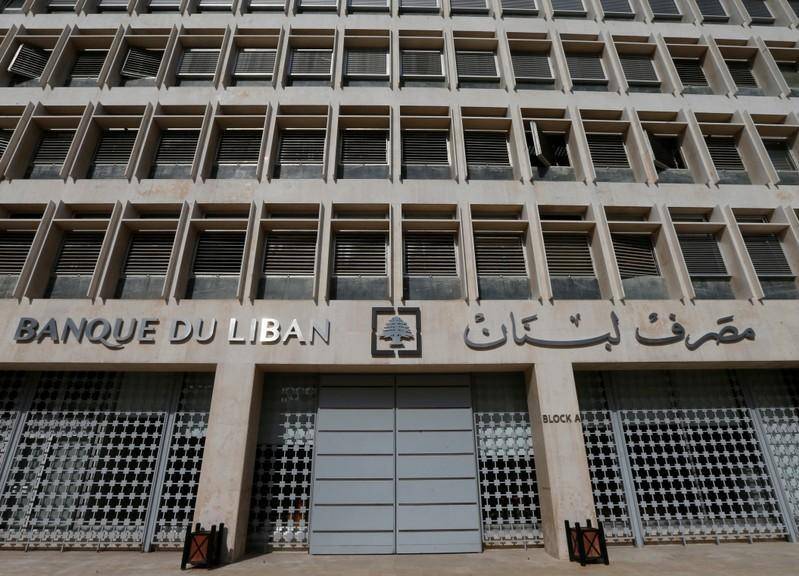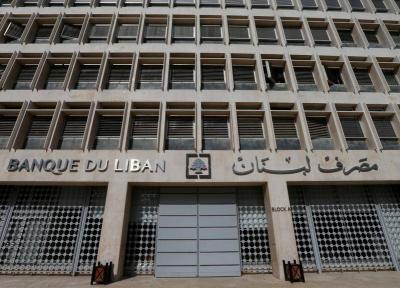Eli Al-Farzli wrote in Al-Akhbar newspaper an article titled: "Bank of Lebanon Threatens Darkness: No Dollars for Electricity," which stated:
"The reassurance provided by the relative stability of fuel supplies has been dispelled by a shortage of dollars. Without these dollars, the electricity sector could collapse. So far, the Bank of Lebanon is still refusing to commit to securing all the sector's needs for foreign currency. If this continues, the first result will be the cessation of operations at the Deir Ammar and Zahrani plants. The operating company's contract expires next Monday. To renew it, they want guarantees of payment to carry out their work. If this does not happen, ten hours of power supply will disappear.
Electricity in Lebanon cannot continue solely on fuel. Recently, the Ministry of Energy was focused on securing fuel for the plants after the termination of the Sonatrach contract. Specifically for this reason, the Minister of Energy announced, after Iraq agreed to supply Lebanon with 500,000 tons of fuel, that there was nothing to fear regarding darkness. However, fear has not left those working in the sector. The dollar scarcity has already frozen many operations and continues to limit energy production. This is why the Ministry and Electricité du Liban are trying to work with the Bank of Lebanon to secure the sector’s needs for fresh dollars. In practice, fuel has no value if maintenance and necessary spare parts to keep the grid and plants operational are not secured. This means that any optimism regarding stable electricity supply before knowing the direction of the Bank of Lebanon remains cautious, especially since the concern is no longer about freezing operations but about the possibility of the network stopping entirely.
On Monday at noon, the contract for the company "Prime South," responsible for operating and maintaining the Deir Ammar and Zahrani plants, will expire. "Electricité du Liban" has formally requested a renewal for one year. However, to this day, the company still refuses to renew until an agreement is reached on the payment mechanism that guarantees maintenance work and the purchase of spare parts. If they do not receive those guarantees, it means turning off the two plants that produce 800 megawatts for the grid, equivalent to ten hours of daily electricity supply. The contract is worth 61 million dollars annually, and the company requested to receive 80% of it in "fresh" dollars, later agreeing to reduce the percentage to 75%, but Electricité du Liban does not have the answer. It is committed to paying in lira at the official exchange rate, as usual, while the central bank is the one that converts the funds into dollars, as has been the practice. This mechanism has collapsed due to the devaluation of the currency and the scarcity of dollars in the Bank of Lebanon. Therefore, coordinating with the central bank to obtain fresh dollars is now required. This necessitates many meetings and explanations for the relevant parties at the bank, in an effort to convince them that securing the sector's dollar needs is as important as obtaining basic goods and materials. Additionally, depriving the sector of dollars will not benefit the Bank of Lebanon either, as cutting ten hours from daily power supply will be compensated by private generators that receive subsidized fuel, meaning higher costs than those saved.
In the case of "Prime South," the company is also demanding 45 million dollars remaining from the 2020 contract. Therefore, the discussions currently include the total amount, including the dues from 2020 and 2021. Electricité du Liban knows that there is no room for luxury in the discussions, considering that about 40 million dollars will be allocated for basic maintenance of three production units that will reach a cumulative 40,000 operating hours this year, after which the units should be stopped and maintained by the manufacturing companies, namely Ansaldo and Siemens. The problem is that regardless of money availability, these units must be stopped once they reach 40,000 hours of production. Therefore, failing to initiate maintenance, which requires 45 days, will mean extending the downtime of the units.
If the threat looms over the Deir Ammar and Zahrani plants with the possibility of shutting down, the shutdown has already affected the Zouk and Jiyyeh new plants. The operating company MEP had to shut down 10 out of 14 production units due to the unavailability of funds required to purchase oils and spare parts. Currently producing only a quarter of its capacity, it will be unable to restart the entire plant until it obtains fresh dollars to secure the necessary equipment for turbine maintenance and operation.
The Electricity Corporation had previously estimated the sector's need for fresh dollars before the end of the year, revealing it to be around 300 million dollars annually. This amount is practically distributed between the corporation itself and service provider companies and plant operators, in addition to the Turkish barges. It may increase or decrease depending on negotiations with the Bank of Lebanon, but negotiators are aware that the bank refuses to commit to any amounts. Even if it does commit, there is nothing preventing it from retracting its commitment, as has actually happened with distribution service companies.
Those companies involved in the operations tied to the direct needs of consumers are experiencing the same crisis, namely the unavailability of the necessary dollars to continue operations, including: installing meters, extending cables, installing stations and transformers, and their maintenance. All equipment required for these tasks is purchased in dollars. Therefore, after many meetings held between the companies and the third deputy of the Bank of Lebanon, Salim Shaheen, last year, it was agreed that these companies would receive their payments in a tri-partite manner: one-third in fresh dollars, one-third in "lollar" (a fictitious dollar within the Lebanese banking sector), and one-third in lira at an exchange rate of 1500 lira to the dollar. In practice, this mechanism was applied for one invoice only before the bank decided to withdraw from this mechanism and only pay a small portion of the funds in dollars.
The Bank of Lebanon pays foreign companies but refuses to pay Lebanese companies! Initially, companies were asked not to transfer their profits abroad, and they expressed their willingness to take any measures to ensure this does not happen, such as the bank paying suppliers directly. However, the real crisis for companies stems from the bank's refusal to pay fresh dollars to Lebanese suppliers. This seemed strange, as the bank had no objections to paying foreign companies, knowing that most transactions by service providers are with Lebanese traders and manufacturers. For example, companies that manufacture transformers and cables are Lebanese firms with factories in Lebanon, but they import raw materials from abroad. Thus, the refusal to pay dollars to service providers automatically leads to non-payments to manufacturing companies, halting operations. Conversely, even if companies could import their needs from abroad, that would require full payment in fresh dollars, while the agreement with Lebanese factories allows for billing distribution between lira and dollars and "lollar," which helps alleviate pressure on the Bank of Lebanon.
Electricité du Liban estimates the sector's need at 300 million fresh dollars. To this day, this issue remains unresolved. The need of the four companies is around 70 million dollars annually (it varies based on the volume of operations and availability of equipment). As long as the Bank of Lebanon does not pay, operations will be delayed. For example, there is an urgent need to install around 100,000 meters throughout Lebanon (requests have previously been submitted for them, and their owners receive free electricity through suspension). Currently, there is no possibility to install them due to the lack of required equipment, resulting in significant losses for Electricité du Liban estimated at 36 billion lira annually (assuming each meter pays only 30,000 lira monthly). This does not concern the Bank of Lebanon. The bank agreed to pay some invoices to foreign suppliers but refuses to pay local suppliers! However, if this problem is not addressed fundamentally, the crisis will turn into a snowball effect. All contracts signed with Electricité du Liban are nearing expiration. The contract for the Turkish barges ends in September, and the contracts with MEP and service provision companies BUS, Dabbas, Murad, and KVA expire at the end of the year. They have begun to indicate their unwillingness to renew contracts without guarantees of securing the dollars they claim are necessary to carry out their work.
Therefore, in response to the argument of unavailability of funds, the Minister of Energy had suggested during support meetings increasing the price of a gasoline canister by 2,000 lira to cover the electricity sector's dollar needs, but the proposal was rejected. Furthermore, in the meetings, there is often discussion of reducing the number of gasoline shipments and reallocating the saved funds to the electricity sector. More than that, some believe that if necessary, the power supply hours could be reduced by one hour, which would be sufficient to secure dollars for the sector to ensure its continuity.
However, despite all these suggestions, everyone is still waiting for the Bank of Lebanon to decide the fate of electricity."




